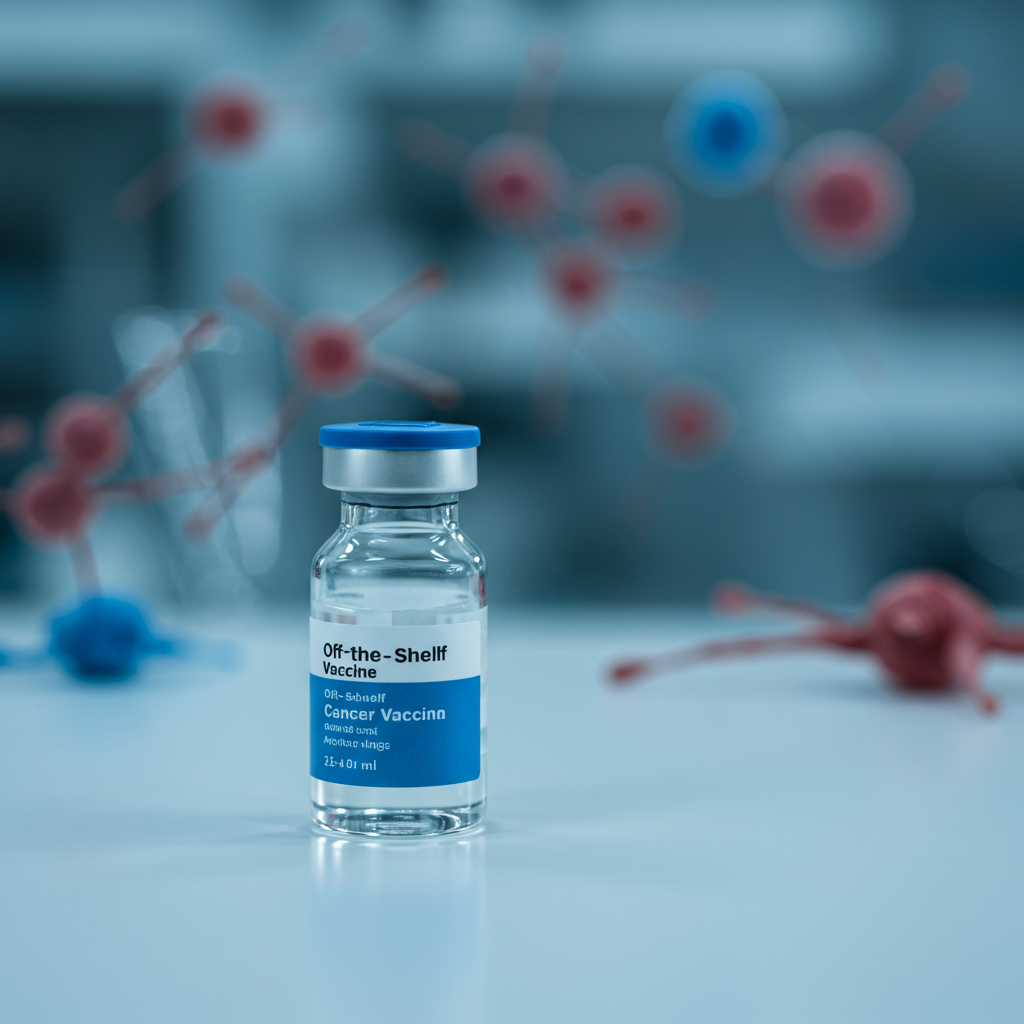An experimental off-the-shelf cancer vaccine is generating significant excitement. Early clinical trial data suggests it could extend lives and prevent recurrence for patients battling pancreatic and colorectal cancers. This innovative approach trains the body’s immune system to target lingering cancer cells, offering new hope in the fight against these aggressive diseases.
Understanding ELI-002: A Game-Changer for Cancer Treatment
Named ELI-002, this therapeutic vaccine represents a potential leap forward. Unlike many personalized treatments, ELI-002 is designed to be “off-the-shelf.” This means it can be mass-produced and readily available, rather than custom-made for each patient. It targets a specific genetic flaw found in many cancers.
The KRAS Mutation: A Key Target
ELI-002 focuses on training the immune system to recognize mutated KRAS genes. KRAS mutations are a common driver of cancerous cell growth. They are present in up to 25% of all solid tumors. These mutations are particularly prevalent in pancreatic and colorectal cancers, making them ideal targets. By focusing on KRAS, ELI-002 aims for broad applicability. UCLA’s Zev Wainberg, a lead study author, noted its potential. If confirmed, this vaccine could help 90% of pancreatic cancers and 50% of colon cancers with this mutation.
How ELI-002 Activates Immunity
This is a peptide-based vaccine. It works by teaching the body’s T cells to hunt down and destroy cancer cells containing the mutated KRAS gene. T cells are crucial components of our adaptive immune system. They act as specialized soldiers, identifying and eliminating threats. By specifically targeting these mutated proteins, ELI-002 seeks to stop cancer from returning after standard treatments. This approach could offer durable protection against recurrence.
Promising Early Results from Phase I Trials
The initial findings from a Phase I trial for ELI-002 are highly encouraging. Researchers tested a version called ELI-002 2P on 25 patients. Twenty had pancreatic cancer, and five had colorectal cancer. All participants had undergone standard treatment. However, they still had residual cancer cells in their blood. This indicated a high risk of future recurrence.
Significant Immune Responses Observed
Patients received six doses of ELI-002 2P. The vaccine was delivered directly to their lymph nodes. Half of the patients also received booster shots. The results were impressive:
Approximately 85% of participants developed an immune response. This targeted the two specific mutated KRAS proteins in the vaccine. Two-thirds showed a very strong response.
Notably, 67% of patients also generated immunity against other KRAS proteins. This suggests the vaccine can amplify overall immunity. It may even target mutations beyond its direct components.
For pancreatic cancer patients, average survival reached 29 months. They also experienced 15 months of recurrence-free survival. These figures are superior to historical averages for similar cases. Patients with the strongest immune responses fared even better.
These critical findings were published in the prestigious journal Nature Medicine. While Phase I trials primarily assess safety and dosage, these early efficacy signals are very promising. They suggest a potential breakthrough in preventing cancer recurrence.
The Advantage of an “Off-the-Shelf” Approach
The “off-the-shelf” nature of ELI-002 is a major benefit. Many other experimental cancer vaccines are personalized. They require significant time and resources to develop for each patient’s unique tumor. An off-the-shelf vaccine is different. It can be manufactured in bulk. This offers several key advantages:
Wider Accessibility: It could reach a larger patient population more quickly.
Cost-Efficiency: Bulk production can reduce manufacturing costs.
Faster Deployment: Patients wouldn’t face lengthy delays waiting for a personalized vaccine.
This scalable solution could profoundly impact how we manage cancers with common mutations like KRAS. It addresses the critical issue of cancer recurrence. Even after surgery and chemotherapy, trace cancer cells often remain. ELI-002 aims to eliminate these lingering “malicious cells” before new tumors form.
Expert Perspectives and Future Outlook
The early results have generated a mix of optimism and scientific caution. Zev Wainberg, co-director of the Gastrointestinal Oncology program at UCLA, expressed confidence. He emphasized the broad applicability if these results are confirmed. Independent experts also weighed in. Dr. Magnus Dillon, a clinician scientist not involved in the study, called the results “extremely promising.” He highlighted the widespread potential benefit of an off-the-shelf option.
Balancing Hope with Scientific Rigor
However, experts also stressed the need for validation. Dr. Khurum Khan, an oncologist, underlined that the findings are “preliminary.” He noted they require confirmation in larger, randomized studies. Richard Sullivan, from King’s College London, added a specific caution. He pointed out that combining pancreatic and bowel cancers in one study could skew early findings. These are “two widely different cancers,” he noted. He also voiced general skepticism, citing past similar approaches that didn’t always translate into “tangible efficacy.”
Despite these important cautions, the correlation between strong immune responses and improved patient outcomes is compelling. It provides a clear hypothesis for further investigation. The unique observation that ELI-002 prompted responses against other KRAS proteins, not just the targeted ones, is particularly intriguing. This hints at a broader therapeutic impact.
The Road Ahead: Phase II and Beyond
The research team is not slowing down. They have already completed enrollment for a larger Phase II trial for ELI-002. Results from this next phase are eagerly anticipated in 2026. This trial will test an updated version of the vaccine, named ELI-002 7P. It is designed to cover an even broader spectrum of KRAS mutations.
The progress with ELI-002 is part of a broader, exciting landscape in cancer vaccine research. Several other candidates are also showing promising results in human trials. It appears we are on the verge of significant breakthroughs in therapeutic cancer vaccines. The first of these newer vaccines could potentially reach the public within the next few years, transforming cancer care.
Frequently Asked Questions
What is ELI-002, and how does this off-the-shelf cancer vaccine work?
ELI-002 is an experimental, therapeutic cancer vaccine. It is designed to be “off-the-shelf,” meaning it can be manufactured in bulk for broader use, unlike personalized vaccines. This vaccine is peptide-based. It works by training the body’s T cells to recognize and attack cells that contain mutated KRAS genes. These mutations often fuel cancer growth. By targeting these specific mutations, ELI-002 aims to prevent cancer recurrence after standard treatments by eliminating lingering cancer cells.
Who could benefit from the ELI-002 vaccine, and what cancers does it target?
ELI-002 primarily targets pancreatic and colorectal cancers that carry specific KRAS mutations. These mutations are common in many solid tumors. Early Phase I trials focused on patients with these cancers who had undergone standard treatment but still had residual cancer cells, indicating a high risk of recurrence. Researchers believe that if validated, ELI-002 could be applicable to a significant percentage of pancreatic (up to 90%) and colorectal (up to 50%) cancer patients who have this common KRAS mutation.
What are the next steps for the ELI-002 vaccine, and when might it be available?
The ELI-002 vaccine is currently undergoing further investigation in a randomized Phase II clinical trial. Enrollment for this larger trial is complete, and results are expected in 2026. This next phase will test an updated version, ELI-002 7P, designed to cover an even broader array of KRAS mutations. If these larger trials continue to show positive results, the vaccine would then move to Phase III trials. It could potentially become available to the public within the next few years, depending on regulatory approvals.
In conclusion, the early results for the off-the-shelf cancer vaccine ELI-002 are incredibly encouraging. It offers a new strategy to combat recurrence in challenging cancers like pancreatic and colorectal. While still in its early stages, this research brings significant hope. It underscores the rapid advancements happening in cancer immunology. Continued investigation in larger trials will be crucial to confirm its full potential and bring this innovative treatment closer to patients who need it most.




